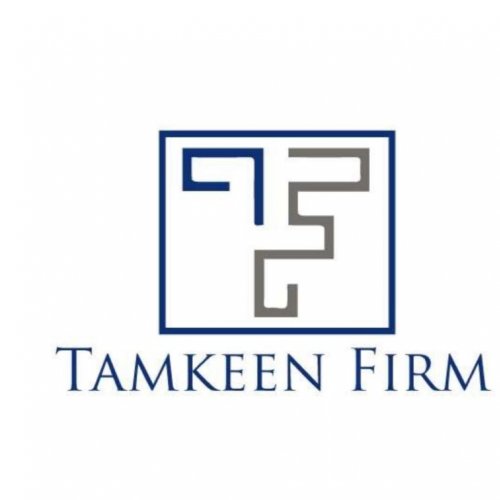Best New Business Formation Lawyers in Libya
Share your needs with us, get contacted by law firms.
Free. Takes 2 min.
Or refine your search by selecting a city:
List of the best lawyers in Libya
About New Business Formation Law in Libya
New business formation in Libya is governed by a legal framework primarily aimed at fostering economic development and diversification. The laws in place regulate various business entities, including sole proprietorships, partnerships, and corporations, ensuring they comply with Libyan regulations. Businesses are subject to registration processes, licensing requirements, and compliance with local trade laws. The government has been focusing on creating an attractive environment for foreign investment and entrepreneurship, offering incentives and mechanisms to ease business setup for both local and foreign investors.
Why You May Need a Lawyer
Engaging a lawyer during the new business formation process in Libya can be invaluable in several situations: - Navigating complex registration processes: Understanding and executing the various steps required by Libyan law to legally register a business can be challenging without legal assistance. - Drafting and reviewing legal documents: Business formation involves creating and reviewing numerous legal documents such as articles of incorporation, partnership agreements, and bylaws, which require professional expertise. - Ensuring compliance with local regulations: Lawyers can help businesses comply with local laws, from employment regulations to environmental laws. - Protecting intellectual property: Lawyers can assist in safeguarding your business's intellectual property, an essential aspect for many enterprises. - Negotiating with local partners or authorities: A lawyer can facilitate negotiations, especially when dealing with contracts or agreements that involve local entities or government bodies.
Local Laws Overview
The key aspects of local laws related to new business formation in Libya include: - Business registration: All businesses need to register with the Government of Libya, providing detailed information about the business structure and operations. - Licensing and permits: Depending on the nature of the business, specific licenses or permits may be required before commencing operations. - Investment incentives: There are laws providing incentives for certain sectors deemed crucial for national development, such as tourism, agriculture, and technology. - Corporate taxation: Businesses must comply with Libyan tax obligations, including corporate tax and VAT. - Employment laws: Libya's employment laws cover the rights and obligations of employers and employees, which new businesses need to adhere to.
Frequently Asked Questions
1. What types of business entities can be established in Libya?
In Libya, common business entities include sole proprietorships, limited liability companies (LLCs), joint-stock companies, and partnerships.
2. What is the process for registering a new business in Libya?
The process typically involves choosing a suitable name, preparing and submitting required documents, obtaining necessary approvals, and registering with relevant government bodies.
3. Are there any restrictions on foreign ownership of businesses in Libya?
While foreign investment is encouraged in many sectors, there may be ownership restrictions in certain industries, and these can vary depending on the specific regulatory framework in place.
4. How long does it take to register a business in Libya?
The duration can vary depending on the business type and compliance with all regulatory requirements, but it can generally take several weeks to months.
5. What are the common costs associated with starting a business in Libya?
Common costs include registration fees, licensing fees, legal fees, plus any costs associated with fulfilling capital requirements if applicable.
6. What is the corporate tax rate in Libya?
Corporate tax rates in Libya can be subject to change, so it is advisable to check the current rate with the Libyan taxation authority or a legal advisor.
7. Is it necessary to open a local bank account for business operations?
Yes, businesses usually need a local bank account to manage financial transactions within Libya.
8. How do businesses protect their intellectual property in Libya?
Businesses should register their trademarks, patents, and copyrights with the relevant Libyan authorities to ensure protection under the law.
9. Are there specific incentives for foreign businesses in Libya?
Libya offers various incentives, particularly in sectors deemed vital for national economic growth. These may include tax breaks, exemptions, or other benefits.
10. Can businesses operate in any sector in Libya?
While many sectors are open, some may have restrictions or require specific licenses, particularly those involving national interest or local resources.
Additional Resources
For further assistance, consider exploring resources such as the Libyan Ministry of Economy, Libyan Commercial Registry, and the Libyan Chamber of Commerce. These institutions offer guidance and support for new business formation.
Next Steps
If you require legal assistance for new business formation in Libya, the next steps would include: - Consulting with a local attorney specializing in business law to gain tailored legal advice. - Gathering and organizing necessary documents related to your business formation. - Visiting or contacting relevant government bodies to start the application process. - Accessing local business networks and chambers of commerce for additional support and mentorship opportunities.
Lawzana helps you find the best lawyers and law firms in Libya through a curated and pre-screened list of qualified legal professionals. Our platform offers rankings and detailed profiles of attorneys and law firms, allowing you to compare based on practice areas, including New Business Formation, experience, and client feedback.
Each profile includes a description of the firm's areas of practice, client reviews, team members and partners, year of establishment, spoken languages, office locations, contact information, social media presence, and any published articles or resources. Most firms on our platform speak English and are experienced in both local and international legal matters.
Get a quote from top-rated law firms in Libya — quickly, securely, and without unnecessary hassle.
Disclaimer:
The information provided on this page is for general informational purposes only and does not constitute legal advice. While we strive to ensure the accuracy and relevance of the content, legal information may change over time, and interpretations of the law can vary. You should always consult with a qualified legal professional for advice specific to your situation.
We disclaim all liability for actions taken or not taken based on the content of this page. If you believe any information is incorrect or outdated, please contact us, and we will review and update it where appropriate.
Browse new business formation law firms by city in Libya
Refine your search by selecting a city.










